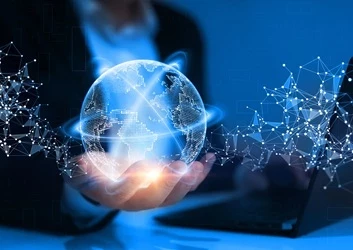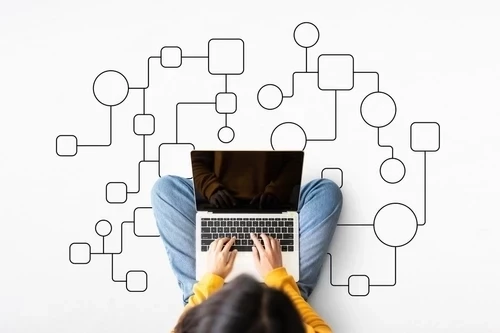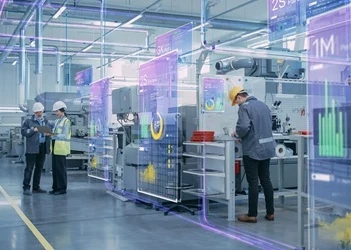4 technology trends coming soon to a process near you
Add bookmarkIf somebody comes up to you carrying a map and asks you for direction: be afraid, be very afraid. They may just be trying to steal your wallet.
In a distraction theft, the perpetrator uses something like asking directions or "accidentally" bumping into you so that you don’t notice when their nimble fingers run off with your valuables. The reason that distraction works, is because our minds have a finite capacity to process information that’s going on in our environment.
(And if you don’t believe it works, watch this video – I won’t tell you anymore but you’ll be amazed at the results!)
The point of all this? Sometimes it’s what we’re NOT paying attention to that really matters.
And while technology is often seen as the domain of the IT department rather than process, there are some radical new technology trends that are sneaking up on your processes right now like the two ton gorilla you didn’t see!
Here are the top trends you need to be paying attention to:
#1: Big Data
The ever ambiguous Big Data (after all, how big does it really need to be?!?) comes in at position number one because we think it has the potential to radically redefine how companies do everything from making decisions, monitoring business operations and performance, and even the types of jobs that exist within your organization. One report from Oxford University published late last year, for instance, predicts that up to 47% of current jobs will be subject to automation and computerization.
Consider a few of these amazing things that are already possible with big data: IBM creates a computer that can out-Jeopardy the world’s best Jeopardy players. Google is set to release a small fleet of driverless cars powered by gas and data – no human intelligence required.
Don’t think it’s going to make an impact on your processes? That’s ok. You’re entitled to your opinion. That’s what the music industry thought about the internet too....
#2: The Internet of Things
Closely related to Big Data is the Internet of Things – the concept of a world where machines talk to machines intelligently to make our lives easier. Think of a train that knows how to brake for optimal fuel efficiency or one that can monitor tracks and wheels and alert engineers of a risk of derailment (something that Union Pacific Railroad is already doing). Or imagine a home plumbing system that will automatically alert your insurance company if there’s a leak so that they can dispatch a plumber to fix the problem (a vision of the future that BPM vendor Pegasystems presented at PEX Week USA earlier this year).
The cool thing about the Internet of Things is that it is enabling new practices that should allow us to be more efficient, responsive and safer - the only limit is your imagination.
#3: Cloud computing & Software as a Service
Yeah, yeah we know this one has been around forever. But the reason it’s not going away is because of how important it is. Just think, instead of having to make a huge capital investment up front and then spent 20 years developing a solution that’s irrelevant by the time you get it working, you can now try something out, see if it works to improve your process and "give it back" to the vendor if you’re not happy with it.
It also completely changes the role of the IT department from "keeping the lights on" to better understanding how to match the needs of the business to the available technology. The software vendor has to do the heavy lifting around uptime, downtime and sideways time (ok, I made that last one up). This follows Adam Smith’s classic theory of division and specialization of labour: your teams can focus on your business, software vendors can focus on the technology. That means better effectiveness and efficiency all round.
#4: Wearable Technology
Admittedly, Google Glass does look pretty dorky (and why it’s called Google Glass rather than Google Glasses is beyond me…). But fashion aside, wearable technology is the trend that has hearts in the tech world all aflutter this year.
If you haven’t been following all the developments in computerized clothing this year, the concept is simple: wearing little computers that lets you do the things that computers let you do. Google Glass, for instance, lets you take pictures, make phone calls, get directions (and a lot else besides) - all from the comfort of your spectacles. There are also watches and clothing that track your physical prowess and tell you how fit you are or aren't.
Don’t see how this is going to revolutionize your processes? It’s still early days but Britain’s PA Consulting has been piloting the use of Google Glass with clients to see how the technology could enable new ways of working. In an article in the Financial Times, Chris Steel, head of PA’s US IT practice offers several suggestions for how companies can use a technology like Google Glass ranging from asset inspections, finding product and managing inventory in a warehouse, or giving guidance remotely.
"Smartglasses would enable on-the job training and let people perform tasks even if they cannot remember all the procedures themselves," he is quoted as saying.
What do you think? Which technology do you think will have the biggest impact on your processes?






















